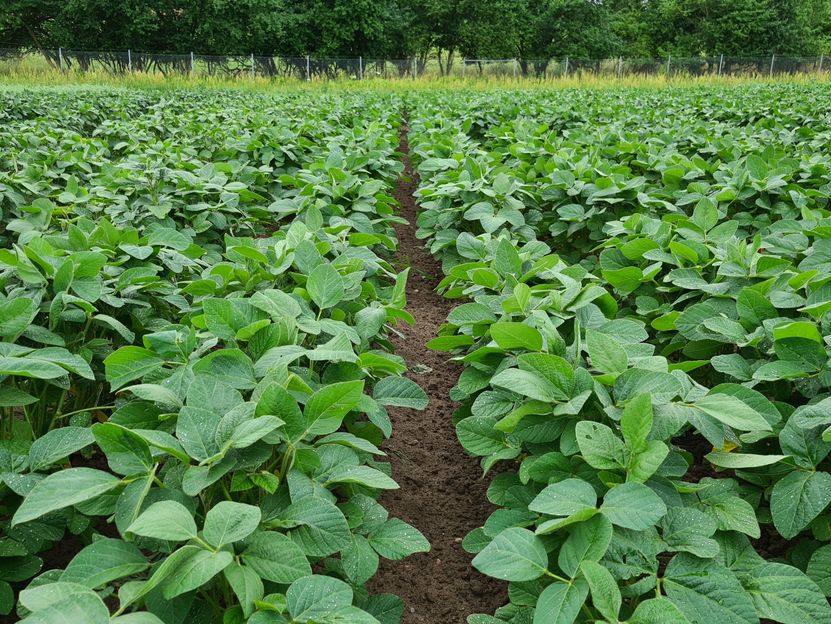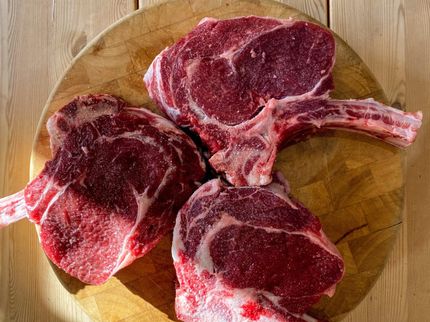An opportunity in climate change: Soy production to increase in Europe in the future
Advertisement
climate change requires a rethink of crop production towards varieties and crops that are better adapted to heat and drought. Soybean is an arable crop that thrives in warm conditions and provides itself with nitrogen, an important plant nutrient that otherwise farmers would have to fertilize. A study published by the Leibniz Centre for Agricultural Landscape Research (ZALF) in the scientific journal "Global Change Biology" shows that in the long term, more and more arable land in Europe will become suitable for soy production. According to the authors of the study, this would enable the EU to do without a large proportion of soybean imports from Brazil and the USA in the future.

In the long term, more and more arable land in Europe will be suitable for growing soybeans. This could reduce dependence on soybean imports from Brazil and the USA.
© Moritz Reckling / ZALF
Soybeans are already grown in France, Italy, Serbia, Romania and Austria, often under artificial irrigation. "Expanding soybean cultivation in previously cooler regions expands the possibilities for farmers to make their crop rotations more diverse and thus mitigate the risk of weather-related yield losses and increase biodiversity", explains Prof. Claas Nendel, head of the study presented. It helps that the soy plant, as a legume, is able to absorb nitrogen directly from the air, so that fertilisation with this urgently needed nutrient may forgo. This also reduces negative environmental impacts, such as the release of excess fertilizer into groundwater.
Breeding must target heat stress
"Under warmer conditions, soybeans yield more than was previously possible with soy varieties adapted to cool temperatures in Germany", explains Dr Moritz Reckling, who conducts research on legume cultivation at ZALF. Generally, soybeans need a lot of water at the beginning of the season, but dry weather for ripening and harvesting. Since soybeans in Germany are in the field until October, precipitation at harvest time has so far been a major risk. The simulations with plant growth models also show that the previous production risks due to cool and wet weather will tend to decrease in the future, while drought and heat stress in particular will grow into a serious risk. Due to the limited water resources in Europe, an expansion of irrigation can only help to a limited extent, so that breeding is called upon to expand its focus on drought- and heat-tolerant soybean varieties.
Project partners:
Leibniz Centre for Agricultural Landscape Research (ZALF), Müncheberg
University of Potsdam
Global Change Research Institute of the Czech Academy of Sciences, Brno
INRAE, Toulouse
Finnish Environment Institute (SYKE), Helsinki
Agvolution GmbH, Göttingen
Institute of Field and Vegetable Crops, Novi Sad
Georg-August-Universität Göttingen
University of Agriculture, Kraków
Terres Inovia, Baziege
Federal University Goiás





















































